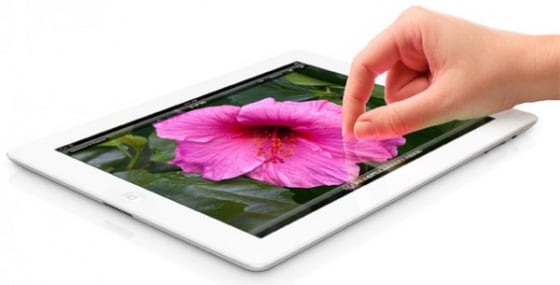A research group says Apple continues to dominate in tablet computers, although its market share is shrinking because of growing competition.
IDC said Thursday that Apple shipped 22.9 million iPads in the October-December quarter, during which it released a smaller version and updated its full-size models. That's a growth of 48 percent from the same period a year earlier. But Apple's market share fell to 44 percent, from 52 percent.
"We expected a very strong fourth quarter, and the market didn't disappoint," said Tom Mainelli, research director, tablets, at IDC, in a release. "New product launches from the category's top vendors, as well as new entrant Microsoft, led to a surge in consumer interest and very robust shipments totals during the holiday season. The record-breaking quarter stands in stark contrast to the PC market, which saw shipments decline during the quarter for the first time in more than five years."
Samsung, maker of the Galaxy line of devices, saw shipments more than triple to 7.9 million. Its market share expanded to 15 percent, from 7 percent. AsusTek Computer Inc., maker of the Transformer line and Google's Nexus 7, also saw shipments and market share increase.
Amazon, which makes the Kindle Fire, and Barnes & Noble "both saw their market share increase sharply as new products gained traction during the holiday season," IDC said.
"Amazon shipped more than 6 million tablets during the quarter, increasing its share to 11.5 percent, up from 8.3 percent the previous quarter, with year-over-year growth of 26.8 percent; Barnes & Noble shipped close to a million units, increasing its share to 1.9 percent, up from 0.7 percent, despite a year-over-year growth rate of -27.7 percent."
Microsoft's Surface RT tablet, starting at $499, and released last fall received "muted" consumer reaction "at best," said Ryan Reith, program manager, mobile device trackers at IDC, in a release.
With another version of the tablet, the Surface Pro, due for release in the U.S. Feb. 9, starting at $899, but coming with a full version of Windows 8, "We believe that Microsoft and its partners need to quickly adjust to the market realities of smaller screens and lower prices," Reith said.
"In the long run, consumers may grow to believe that high-end computing tablets with desktop operating systems are worth a higher premium than other tablets, but until then ASPs (average selling prices) on Windows 8 and Windows RT devices need to come down to drive higher volumes."
NBC News also contributed to this report.
